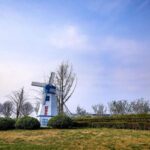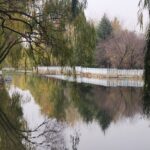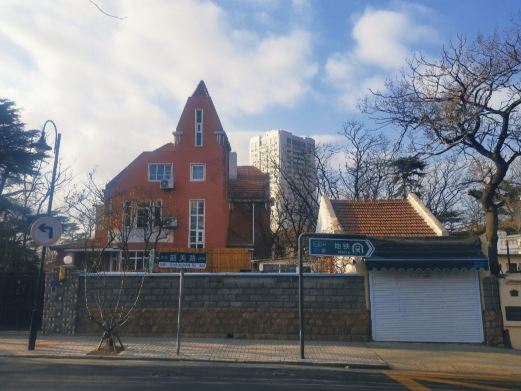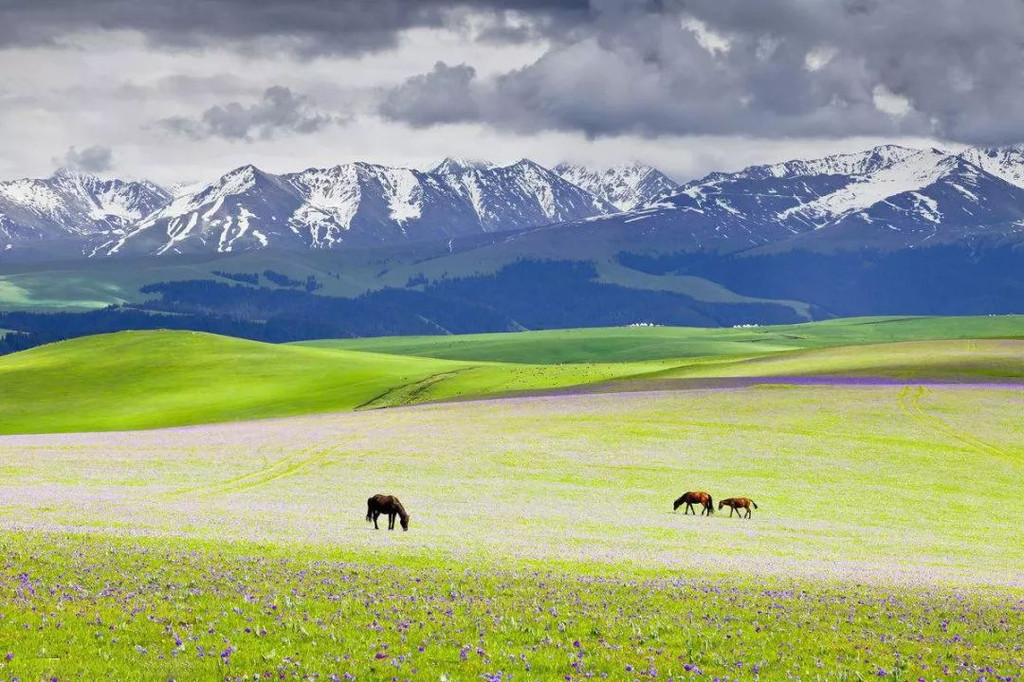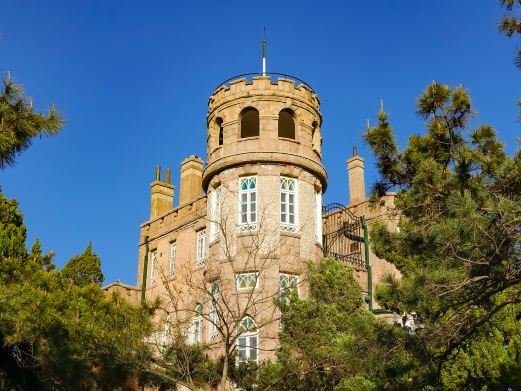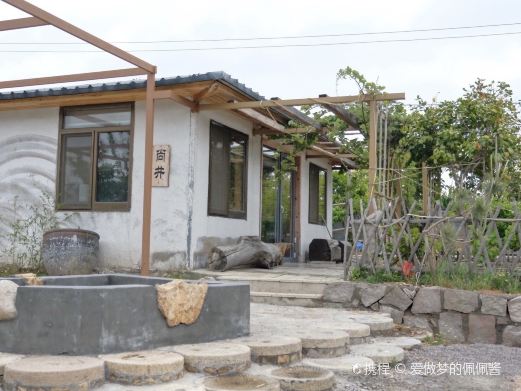Diaowoyu is the site of the first peasant uprising in the late Sui Dynasty (611 AD). The valley is deep, strange and dangerous, and the scenery is very peculiar. Diaowoyu is connected to high mountains on three sides. Only at the northwest corner, there is a valley entrance – Shimen, which is more than 20 meters wide from east to west. Legend has it that Shimen was built during the Wang Bo uprising. It can be said to be a strategic point where ‘one man guards the pass and ten thousand men cannot open it’. There are ‘ancient stone walls’ (also known as stone city walls) on the east and west of Shimen, which extend along the mountain on both sides. They are about 2 zhang high and each is about 2 Chinese miles long. Entering Shimen, one can hear the gurgling sound of water but not see the water. There is a mountain stream in the southwest. There are many rocks squatting. The water silently passes through from the bottom of the stones, so it is named ‘Qianlongjian’. At the west end of the mountain in the north of the valley is Jiuding Peak, which is extremely strange and dangerous. The cliffs are dripping, and they converge into mountains and rivers and are connected to the Huoshui River. Continuing east from Jiuding Peak, wild flowers are everywhere and thorny grass grows. The sun-facing flowers bloom early and are suitable for spring. It is known as ‘Yingchunling’. On the top of the east ridge, a large number of boulders are inclined and stand on the peak. From a distance, it looks like a blooming lotus. It is called Lianhuatai (also known as Lianhuafeng). At the top of the mountain in the south of the valley, there are two large boulders facing each other, shaped like a door opening. It is known as ‘Tianmen’. It is said that Bixia Yuanjun must pass through this door when going to ‘Grandma Taishan’s house’. There is a Liuyu waterfall to the west of Tianmen. In summer, mountain torrents rush down directly. The water is turbulent and surges like thousands of horses galloping. In Qingyang Town more than ten miles away, one can hear its earth-shattering roar and see the thousands of feet of white curtain, just like the wonder of ‘the Milky Way falling from the ninth heaven’. At the triangular area at the lower end of the north of the valley, there is a spring well, which is known as ‘Meijing’. The water of Meijing is extremely sweet and does not dry up even in a long drought. It is provided for tourists to drink. Many tourists draw water and take it home as holy water, which can reduce inflammation and cure diseases. The water of this beautiful well passes through Danan’gou. There are more than a hundred kinds of medicinal materials on the mountain. The roots of the medicinal materials are moistened by water and seep into the well. The water contains a variety of medicinal elements, so it has the effect of reducing inflammation and curing diseases. From Meijing up, in the flat place in Danan’gou, there stands a stone pillar about two zhang high, shaped like an inverted giant pen. It is called ‘the tip of the pen stone’. Opening hours: Open all year round from 7:30 to 17:00. Preferential policies supplementary note: 1. A. Free ticket policy: Children under 1.2 meters in height are free; people over 70 years old, active servicemen, etc. are exempted from tickets with valid certificates. B. Preferential policies: Elderly people between 60 and 70 years old (with senior citizen card or ID card), students (with their own valid student ID), and people with disability certificates can purchase preferential tickets for the scenic area with valid certificates (the above preferential policies need to be purchased at the scenic area by yourself). 2. The above information is for reference only. The specific information is subject to the disclosure on the day of the scenic area.
Diaowoyu Scenic Area in Qingyang Town
Diaowoyu is the site of the first peasant uprising in the late Sui Dynasty (611 AD). The valley is d[...]
